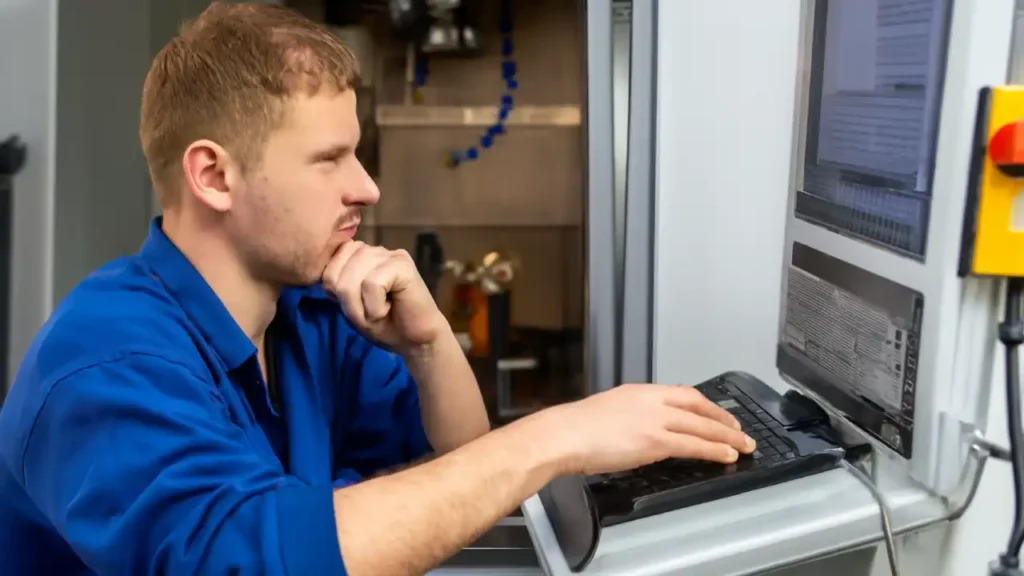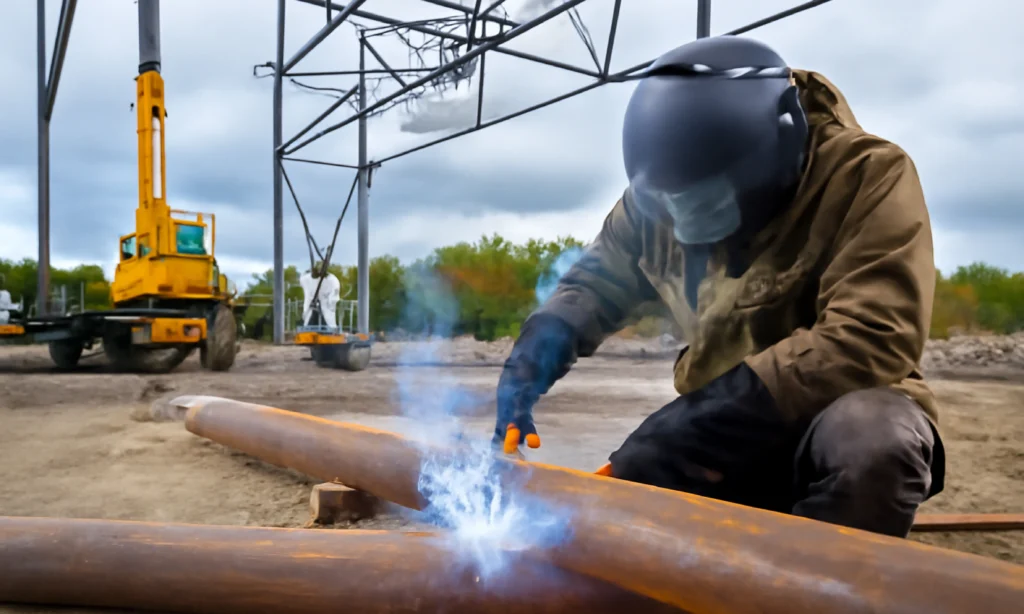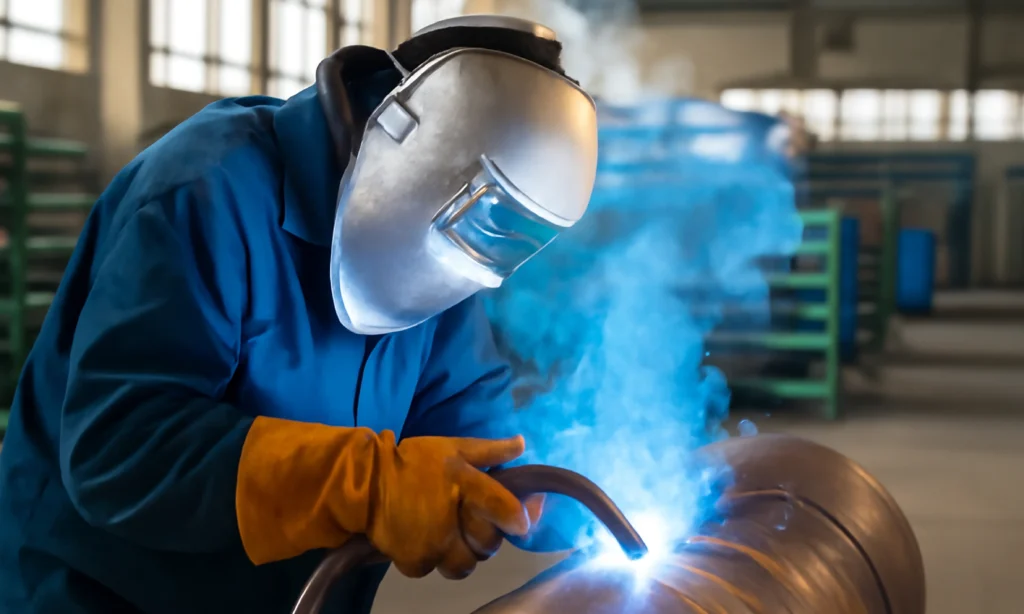The manufacturing industry in Malta is growing steadily, which opens a lot of opportunities to those interested in entry-level machine operator jobs. This strategic position of the island nation in the Mediterranean, coupled with a highly skilled labor force and favorable business environment, has made the country a destination of choice by international manufacturers in different industries.
The work of machine operators is a great way to enter the industrial sector of Malta. The jobs are stable, well-paid, and have well-defined career growth. As a recent graduate, career changer, or a person interested in entering the job market, the knowledge of the machine operator job market in Malta may assist you in making an informed choice regarding your professional future.
This is a complete guide that will tell you all you need to know about entry-level machine operator job positions in Malta, including the industry sectors and expected salary, application approach and career growth opportunities.
Understanding Machine Operator Roles in Malta
What Does a Machine Operator Do?
Machine operators are tasked with the running, monitoring, and maintenance of different kinds of industrial machines. Their day to day activities are normally:
- Running the machines on the basis of safety measures and production timetables
- Tracking the performance of equipment and the possible problems
- Carrying out regular cleaning and simple problem solving
- Data and quality recording of production data
- Working according to the safety measures and using the right protective gear
- Working with managers and quality assuring departments
Machine Operator Jobs Types
The varied manufacturing industry in Malta provides the opportunity of being a machine operator in many sectors:
Manufacturing and Production: Work assembly line machines, packaging machines and quality control machines in manufacturing factories of consumer goods, electronics and automotive parts.
Food and Beverage: Operating food manufacturing processing machinery in Malta such as, bottling lines, packaging systems and food processing machinery in the food manufacturing industry which is growing in Malta.
Pharmaceutical: Working in special equipment of the Malta pharmaceutical industry, which has become one of the most successful in the European region and has attracted leading global corporations because of the attractive regulatory environment and the availability of highly qualified labor.
Textiles and Garments: Control over textile machines, cutting machines and finishing in the developed garment industry in Malta.
Print and Packaging: Working on printing presses, cutting machines and packaging equipment within the commercial printing and packaging industries of Malta.
Key Industries Hiring Machine Operators
Pharmaceutical Manufacturing
Malta has emerged as a European center of pharmaceutical production, Actavis, Teva and Siegfried are some of the companies that have set up big operations in the island. Pharmaceutical industry is one of the industries that have the best paying machine operator jobs because of the stringent quality requirements and specialized machines.
The entry level positions involve working on tablet presses, packaging lines and quality testing equipment. Pharmaceutical industry is also concerned with attention to details and strict adherence to protocols and as such, it is best suited to methodical employees.
Electronics and Technology
Multinational electronics have set up factories in Malta and they need operators who are trained to work on precision instruments. These positions usually include working on surface mount technology (SMT) lines, testing equipment and automated assembly systems.
Electronics is the sector offering great training and exposure to the latest technology, and hence is appealing to those who want to pursue a technical career.
Food and Beverage Production
The food and beverage sector of Malta caters to the local and international markets. The machine operators in this industry deal with bottling lines, packaging machines, and food processing machines. The key employers are local breweries, soft drink producers and food processors.
The industry provides a fairly secure job with a possibility of overtime in the peak season.
Automotive Components
A number of automotive parts manufacturers are located in Malta, manufacturing parts to European car manufacturers. The precision machining equipment, assembly lines and quality control systems are the equipment used by machine operators in this sector.
Automobile business offers career advancement and growth and normally come with other benefits like performance incentives and profit sharing.
Salary Expectations and Benefits
Entry-Level Salaries
The average wage of entry level machine operators in Malta is between 16,000 and 22,000 euros per year and it varies according to industry and the size of the company. Salary-affecting factors are:
- Industry (pharmaceutical and electronics usually pay better)
- Profitability and size of the company
- Working schedules and extra hours
- The geographical position in Malta
- Prior experience and qualification
Additional Benefits
Most employers provide a full package of benefits which could include:
- Coverage of health insurance
- Statutory minimums of annual leave An excess of statutory minimums of annual leave
- Performance-based bonuses
- Premium rates of overtime pay
- Training and development possibility
- Transportation allowances
- Restaurant or food subsidies or canteen services
Career Progression
Careers as machine operators usually offer well-defined career development opportunities. After experience and further training operators may advance to:
- High paying senior machine operator positions
- Team leader or line supervisor jobs
- The position of quality control specialist
- Maintenance technicians jobs
- Production planning coordinator jobs
Essential Skills and Qualifications
Basic Requirements
The majority of entry level machine operator job descriptions need:
- Secondary education Completion
- Mere mathematical and reading comprehension skills
- Standing, lifting and manual dexterity physical fitness
- Teamwork and instructions skills
- Ability to work at different shifts including nights and weekends
Technical Skills
Although such skills are not necessarily needed to enter an entry-level position, they may increase your chances:
- Simple knowledge of mechanics systems
- Experience with computer system and data entry
- Familiarity of safety processes and practices
- Hand tool and measuring instruments experience
- Knowledge on the principles of quality control
Soft Skills
Employers are interested in people who can show:
- Precision and accuracy
- Dependability and time-keeping
- Problem-solving abilities
- Communication skills
- Flexibility to the altering processes
Finding Machine Operator Jobs in Malta
Online Job Platforms
There are some websites that focus on Malta job listings:
JobsPlus Malta: The government agency in charge of employment has an active job board that contains frequent postings of machine operators by local employers.
Indeed Malta: It contains both local and international vacancies, and it is possible to filter them by the level of experience and salary range.
LinkedIn Malta: Business-oriented social media that contains job and company details, helpful to search about prospective employers.
Local Company Web sites: Lots of companies place openings on their sites first, then on other sites.
Recruitment Agencies
Specialist recruitment agencies are able to find appropriate jobs:
- Manufacturing industrial recruitment firms
- Temporary agencies that provide contract to permanent jobs
- Recruitment companies operating in Malta International companies
Direct Applications
The proactive job seekers can:
- Go to industrial regions and make direct applications to the manufacturers
- Go to career and job fairs
- Connect with hired workers in the industry
- Get in touch with the HR departments of companies directly
Application Process and Tips
Preparing Your Application
CV/Resume: Adequate experience, even though not directly related to the operation of the machine, should be mentioned. Add any equipment training, safety degrees or practical experience with equipment.
Cover Letter: Show real enthusiasm in the company and the job. Stating that you are ready to study and adjust to new technologies.
References: Give people who will vouch on your reliability, work ethic and instruction-following skills.
Interview Preparation
The interviews of machine operators usually revolve around:
- Safety consciousness and adherence to the procedures
- Pressure and production goals achievement ability
- Teamwork and direction taking experience
- Physical abilities and fitness to the job
- Probability to work on different shifts and overtime when required
Skills Assessments
Certain employers will carry out:
- Elementary math and reading reading tests
- Mechanical aptitude test
- Hand eye coordination tests
- Knowledge questionnaires of safety
Training and Development Opportunities
On-the-Job Training
The majority of employers have elaborate training programs that include:
- Operation of equipment and safety practice
- Testing procedures and standards of quality control
- Policies and production processes of the company
- Crisis management and trouble shooting
Certification Programs
A number of bodies provide the applicable certifications:
- Industrial courses Malta College of Arts, Science and Technology (MCAST)
- Computer literacy European Computer Driving Licence (ECDL)
- Certification of health and safety Health and safety certifications are a form of certification of health and safety practises and procedures.
- Training programmes that are industry-specific
Continuous Learning
Effective machine operators are able to invest into continuous improvement by:
- In house training programs and workshops
- Training on other type of equipment
- Improvement of leadership and supervisory skills
- Technical certifications of specific fields
Work Environment and Conditions
Physical Demands
The duties of machine operators are generally associated with:
- Long standing
- Raising of up to 25 kilograms of materials
- Temperature controlled working environments
- Working in possible noisy environments
- Personal protective equipment wear
Shift Patterns
Manufacturing processes tend to work at several shifts:
- The day shifts are usually 7:00 AM to 3:00 PM
- Evening shifts 3:00 PM to 11.00 PM
- Night shifts 11:00 PM- 7:00 AM
- There are certain jobs that might need rotational shifts
Safety Considerations
Malta has high standards of safety at work. Operators must:
- Comply with all the safety measures and steps
- Put on proper personal protective equipments
- Report dangers to safety as soon as possible
- Take part in the frequent safety training
- Keep work places clean and orderly
Future Outlook and Career Growth
Industry Trends
Malta manufacturing sector is still evolving with:
- Smart manufacturing and more automation
- Increased concerns on environmental friendly production processes
- Increase of high-tech industries that demand skilled operators
- Application of Industry 4.0 technologies
Career Advancement
Skilled machine operators may take up a number of career options:
Technical Development: With more training and experience move up to levels of maintenance technician, equipment specialist or process engineer.
Leadership Positions: Take up supervisory, team leader or production manager roles by acquiring leadership skills and business knowledge.
Specialized areas: These are areas of specialization such as quality control, safety coordination or training and development.
Entrepreneurship: Some of the skilled operators open their own manufacturing or maintenance service firms.
Taking Your Next Steps
Machine operator entry-level jobs in Malta present an outstanding career-building opportunity to any career-driven individual who wants to work in a stable environment with a potential to grow. Various industries, good remunerations, and good career progression routes make this a lucrative career to job seekers.
The ability to win these jobs is based on the ability to prove reliability, safety awareness, and the desire to learn. Although being technically skilled is a good thing, employers usually value attitude and work ethic more than the amount of experience in entry-level positions.
Begin by doing the research of the companies in your target industry sectors and customize your applications to indicate the skills and experiences that are applicable to them. You may want to take up some basic certification or training courses to enhance your candidature. Above all, stay positive and persistent in the search of a job.
Manufacturing in Malta is still expanding and this provides continuous job opportunities to committed machine operators. With the knowledge of the industry environment, application preparation, and the willingness to learn continuously, you will be able to develop a successful career in this critical area.



